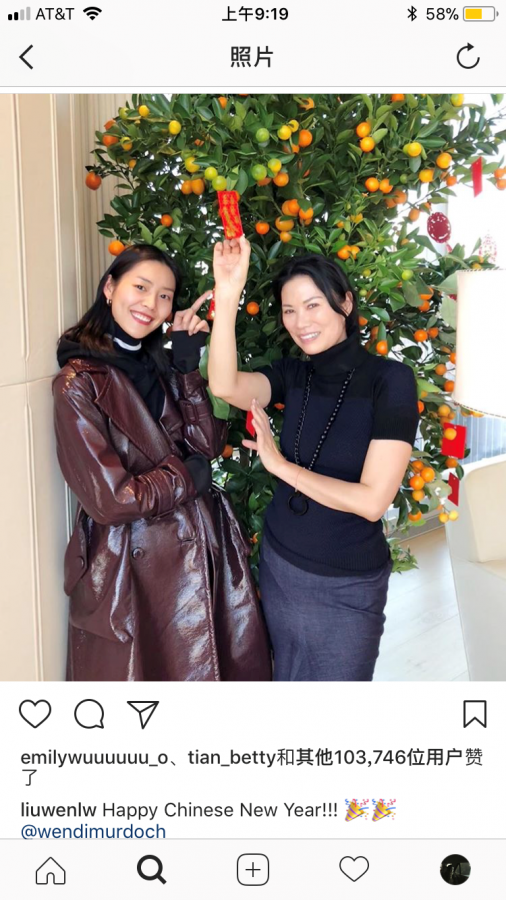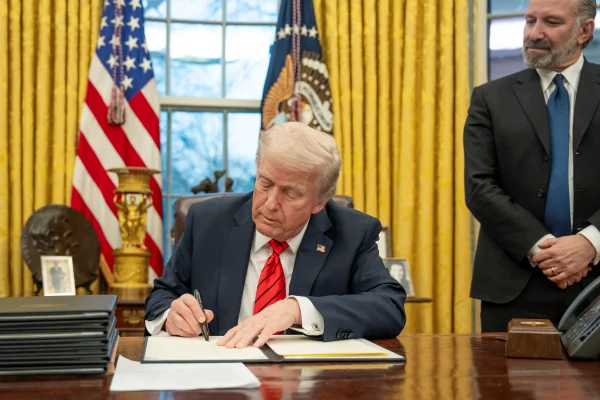Chinese New Year or Lunar New Year?
On February 18, one of the best-known models in China, Wen Liu, posted a picture of herself posing with Wendi Deng Murdoch, businesswoman and former wife of media titan Rupert Murdoch, with the greeting “Happy Lunar New Year.” However, different from what Liu had anticipated, the post was met with overwhelming criticism from many of her 3.7 million Instagram followers.
The main controversy centered around Liu’s word choice of “Lunar New Year” instead of “Chinese New Year.” In the comments, many Instagram users accused Liu of obscuring her Chinese roots and not being patriotic enough.
Liu is a 30-year-old model from Yongzhou, Hunan Province.
These criticism emphasizes that the festival in concern is a traditional Chinese holiday, while the term “Lunar New Year” is a subtle way to de-culturize and de-nationalize the New Year. They believe that Liu, who posted “Chinese New Year” in previous years, changed the phrase to “Lunar New Year” this year with the intention to please other Asian countries that celebrate the Chinese New Year, such as Korea and Vietnam.
On the other hand, many fans of Liu’s defend her by saying those criticizing users are being overly sensitive, and the two phrases “Chinese New Year” and “Lunar New Year” should be used interchangeably.
Faced with an increasingly fervent argument, Liu eventually changed her original post to “Happy Chinese New Year” to appease the fury.
Is there actually a difference between the two phrases? It turns out that people still hold different opinions towards the issue, and there is no definite answer.
Generally speaking, Chinese New Year is the first day of a year according to the lunar calendar, which is based upon the monthly cycles of the Moon’s phases. However, in Chinese-based calendars, the date of the new year is also adjusted with regards of the sun, making the calendar “lunisolar.” In other lunar calendars, such as those used in Mongolia, the new year falls on a different date. Therefore, Lunar New Year could theoretically be referring to different things.
The phrase “Lunar New Year” have been used in major news sites and social medias, such as China Daily and Voice of America, along with “Chinese New Year” in recent years. But this incident is the first major backlash that has ever occurred.
Jim Li, a Chinese student studying in a American high school in New York, called the criticizing comments from Liu’s Instagram “literary inquisition.” Kevin Wang, another Chinese student studying at Canterbury School in Connecticut, concurred with Jim and said that: “I think the people overreacted. People have the tendency to be overly criticizing towards celebrities on the Internet.”
A Chinese student from Williston who preferred to remain anonymous, said: “I sort of get why the people are angry, though. I feel fine about people from other countries using ‘Lunar New Year.’ But I do think it is better for Chinese to call the holiday ‘Chinese New Year.’ That’s what we always call it.”
Last year at Williston, the phrase “Chinese New Year” was changed to “Lunar New Year” due to the suggestions from several Korean students, who believed that “Lunar New Year” is a more inclusive phrase.
Minh Nguyen ’18 is from Vietnam. She said: “I don’t see any big difference in these two phrases. But to be honest, I feel a little bit excluded if our school just calls it ‘Chinese New Year’.”
Williston always tries to honor every student’s cultural background and make its campus a welcoming place for everyone. On February 14, a special event was held on the second floor of the Science Building for those students who celebrate the New Year.
Shirley Zhou is a four-year senior at Williston. She is from Changshu, China. She enjoys listening to music, playing the guitar, and creative writing (preferably...













Kevin Wang • Feb 23, 2018 at 11:54 AM
Nice!! I want to become a editor as well.